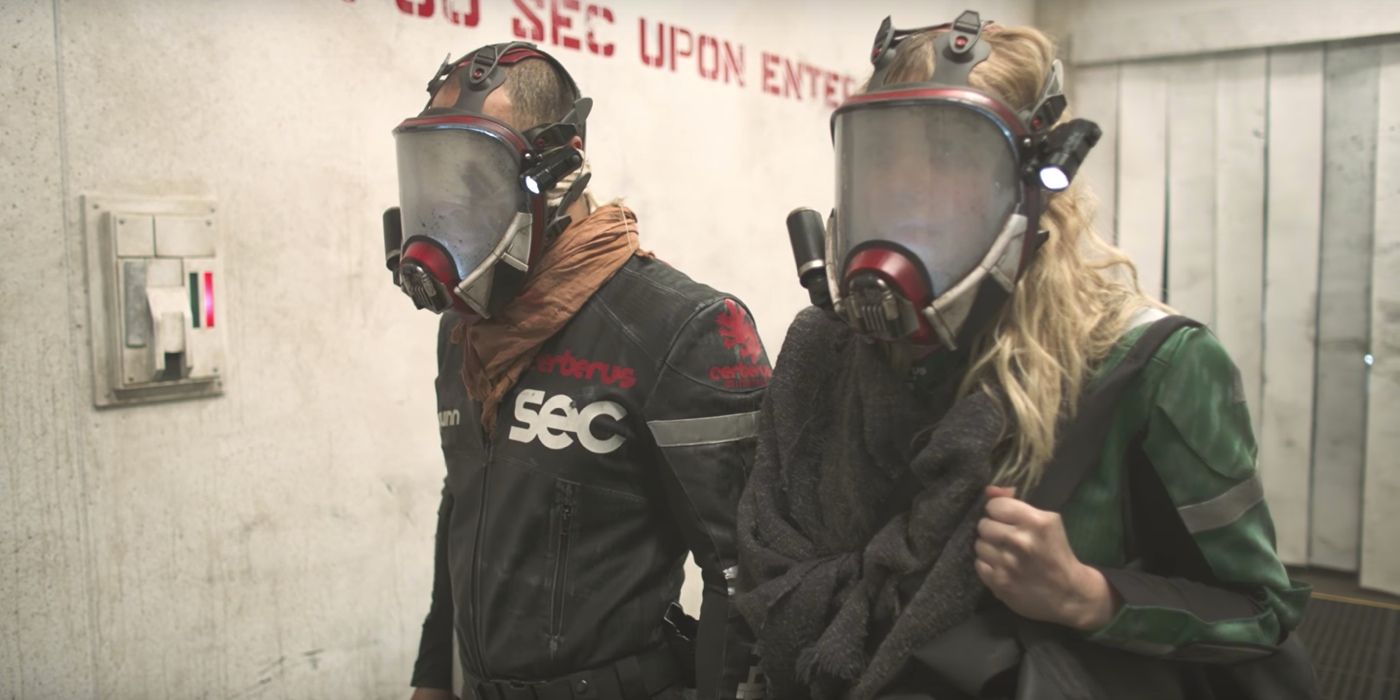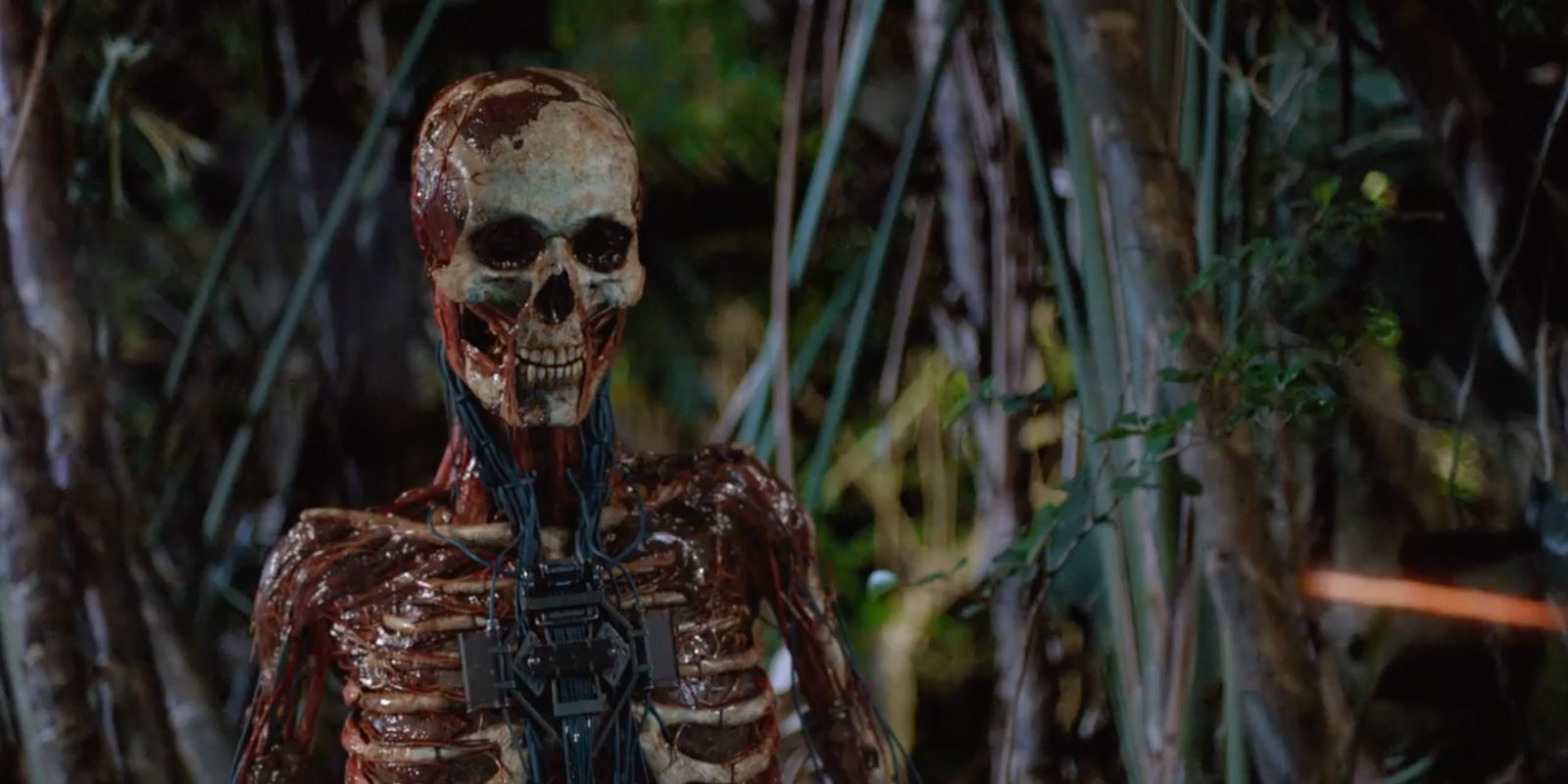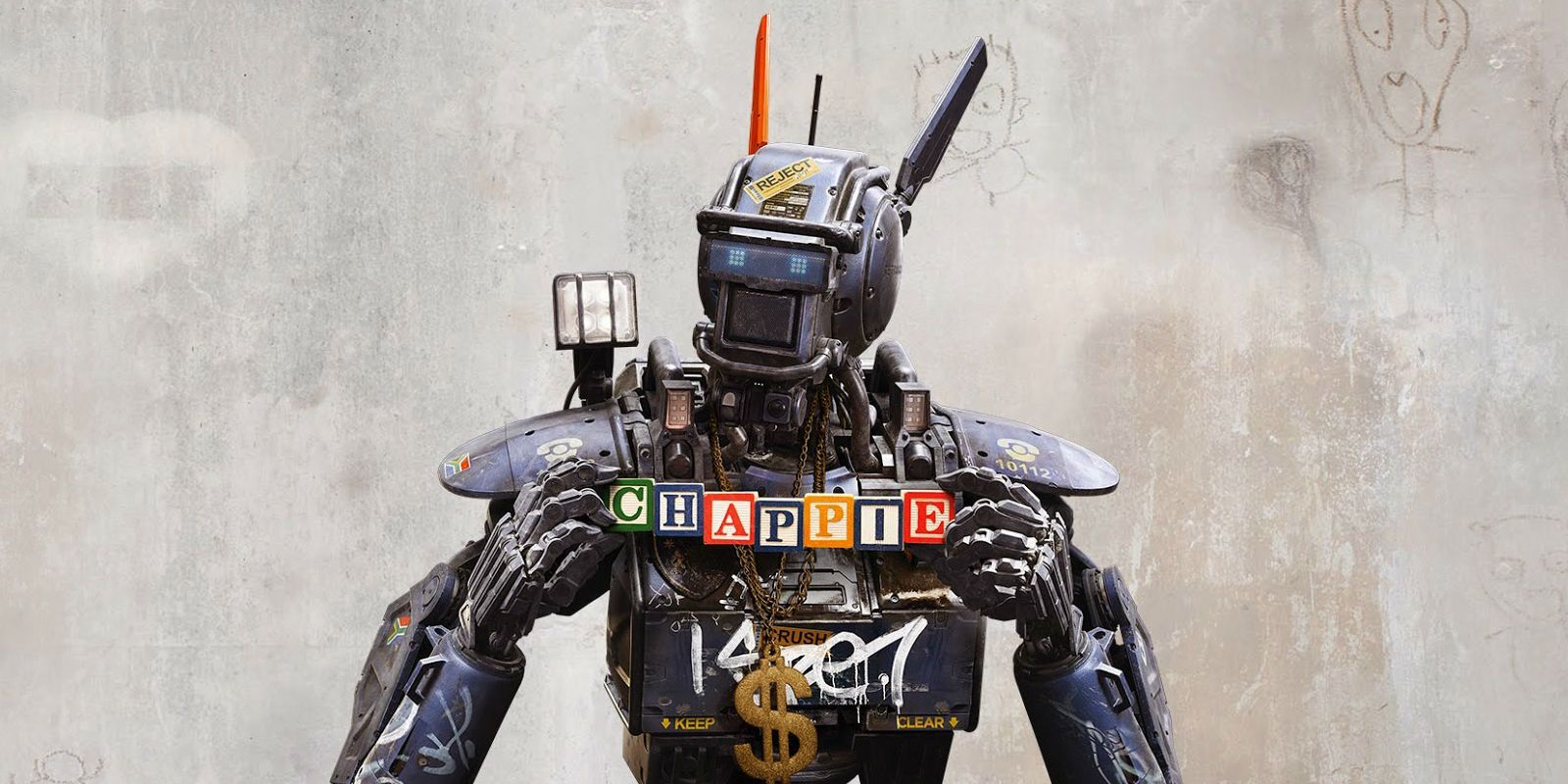Neill Blomkamp’s always been a different sort of director, and his latest venture, Oats Studios, may be his more daring yet. His debut, District 9, was a wholly original sci-fi allegory feature based on his previous short Alive in Joburg that came with an impressive budget and Peter Jackson endorsement, and in the years since that Best Picture-nominated hit he’s definitely not been short on vision (even if they’ve not always landed as well as he’d like). After all, he’s the man who managed to get an Alien retcon sequel greenlit off impressive concept art alone (a project that was only canceled when Ridley Scott returned with force).
Oats is his next step. A filmmaking lab where he produces uniquely-funded short films exploring specific movie pitches with major named actors and impressive visual effects, he’s been releasing Volume 1 over the past month to widespread acclaim.
For the release of Zygote, the third full-length Oats film, we talked with Neill to find out how his studio came together, what got Dakota Fanning on board and where exactly his long-term goals are pointing. We also discussed how it would have affected his previous films and gained some clarification on his previous comments about Elysium and Chappie.

We saw Zygote the other day and it’s really good. I’m going to dive straight into what jumped out to me about this particular one. There’s a lot of Alien elements in the ideas of this company, the androids and everything. Were you at all inspired by Alien making this – you’ve got a bit of history with that franchise?
Not consciously, but probably subconsciously. I think it would be more accurate to draw it to The Thing than Alien. The whole idea of replicants and non-biological synthetic humans is an incredibly intriguing idea to me. And Ridley Scott – he’s definitely not unfamiliar with that idea [that] so influences his films, so you can draw parallels to Barkley [Dakota Fanning’s character] that’s for sure, but I think that the setup is a little bit more like The Thing where you have isolated people and something slowly attacks.
And it’s set in the Arctic – it has that same cold, unforgiving sense of the location being as deadly as the creature. They are trapped in a very open landscape.
Yeah, it’s claustrophobic, remote, isolated.
One thing that surprised me is the caliber of the actors that you’ve got in all the Oats shorts. How’ve you gone about getting people like Sigourney Weaver and Dakota Fanning in these?
Well, Dakota – I had a done a BMW commercial with Dakota and we [Oats] were pretty into Zygote by the time that I shot the BMW commercial. Actually, when we finished shooting BMW, I was in Ontario and went to go and see the location for Zygote which ended up being this Canadian nuclear fallout shelter for the politicians during the Cold War. I was pretty into and then I loved working her on BMW. She’s such a professional and so talented – she’s exactly the kind of actor that I would like to work with. So I was like, “Hey I have this new thing that we’re making and I have this script that’s kinda in the horror/sci-fi realm. Would you take a look at it?” And she responded, I think, to Barkley, to the character of Barkley, more than the sci-fi setup or any of the horror elements – she just liked Barkley. And she said, “Yeah, I’ll do.” And we just went from there. It was fortuitous timing and the fact that she liked the character.
In regards to the production of these, they look incredible – all your work has looked incredible, going right back to Alive in Joburg. But obviously these have been produced by your own studio. What sort of budgets are you playing with on these?
Not expensive. I mean, they’re not cheap – we’re talking about Volume 1, [it] is really millions of dollars. If you added the four bigger pieces that we’ve done that would total 90 minutes, I think that the cost getting to those 90 minutes is leagues and bounds ahead of what it would normally cost in any normal Hollywood setup. So it’s like, is it expensive? Yeah, I guess. Is it more effective, efficient than normal? Yeah. Kind of a mixture of both.

Oats is obviously designed to power this stuff. When you started doing Oats as an idea, did you have a specific thing you wanted to do? Was it just to work freely or has the idea of an incubator for some bigger ideas always been the main focus?
Well, two things were happening simultaneously. The end goal and the general goal for Oats has been razor sharp, crystal clear since Day 1. The economic business model to generate enough capital to keep around has been constantly shifting and unclear, and we need to see the audience even liked what we were doing. I know that’s a convoluted answer, but it’s a mixture of both. In terms of what the goal was and what we want, it’s an incubator of ideas where we make short films from one minute to twenty-five minutes long that show a variety of different ideas and show other concepts and worlds I’d like to go into directing bigger pieces out of. We want to take the pieces that we like the most and the pieces which the audience seems to be responding to and turn those into full-length feature films where we are the studio that makes every element of that film from the wardrobe to visual to editing to sound design – it’s under one roof. It’s a massive creative engine. We have essentially built that and essentially done that with the pieces we’ve made so far. So now the question is how to fund the next step. That’s the answer.
So this really is like what you did in Alive in Joburg and District 9 – it’s an extension of taking a short film and if it works then expanding it, basically?
Yes. Except when I did Alive in Joburg it never occurred to me that would be turned into a film. That turned into a film only because Halo stopped and Peter Jackson was like, “Do you have anything you would like to turn into a film?” I think that within those, we don’t necessarily know which pieces are gonna to turn into a film. So all of them are done with just a creative passion because we like the pieces. So yeah, we want to turn them into a piece, but you have to make sure that you’re not doing it as part of a bigger business plan. You’re doing it because you’re creatively invested.
I’ll give you an example. The God pieces that we did – we shot four Gods where he lords over his creation and tampers with them and plays with them. We did visual effects for two of the four that we shot and we’ve released one so far. They will probably never be a feature film. That is simply something under the umbrella of the insanity that is Oats, where if we end up selling a feature film to the audience traditionally and we get enough proceeds from that to fund more short films that could potentially become features, we will also fund short films that will never become features that are done just for the sake of creativity. It’s sort of a mixture of both – it’s a strategic business model where you try and tell these bigger [stories], hopefully things that almost become franchises and we love creatively, but then also just weird sh*t because we like that.
Talking about weird sh*t, I really loved Cooking with Bill and how you’ve got this series of vignettes where it’s always the same “something goes wrong” and they just get weirder.
I like Cooking with Bill a lot. The weird thing that happened with that is Alex Gillis. I don’t know if you recognized Alec who plays Bill, but Alec is this Oscar-level prosthetic artist, he did Aliens and he and Tom Woodruff on Amalgamated Dynamics did all of the Starship Troopers creatures. He’s a real serious special effects force to be reckoned with. I sent the company – Amalgamated Dynamics – the scripts for Cooking with Bill because I was like, “Can you do these props for us. We need these crazy, multi-bladed things.” And he was like “We can do those props for you, but I want to put myself forward as Bill” and I was like “WHAT?! You want to get into acting?” and he’s like “Yeah, I want to play Bill. Put me down as Bill.” And I was like “Would you be willing to go on pay for it – would I need to I’m going to go cost other actors.” And he’s like, “Nah, I don’t really want to be on pay , if you think I can do it put me in Cooking with Bill.” And so I did and I loved him in it.
I knew I recognized him from somewhere! They also did The Thing remake, which ties into what we were saying earlier.
Exactly.
When you’re talking about Oats bringing together all these ideas and the different processes – having those guys involved must be pretty cool as well.
It’s pretty awesome. Alec also helped when we ended up building a workshop in the back of our studios here so that we could build practical and prosthetic parts ourselves. He helped set that up and Werner Pretorius in Vancouver took over. But ADI was really helpful with everything to do with Oats.
Cool. One thing I wanted to ask about, in regards to the longer shorts, people have been trying piece them together as a shared universe or related thing. There’s obviously the idea of precognition running through some of them. Is that something you’d be interested in trying to do – to build this Oats world where everything feeds into each other or is it at the moment just building these individual stories and letting them sit by themselves?
No. At the moment they’re exclusively independent. They don’t adhere to rules that have been established in other universes. They’re exclusively independent.

You’ve talked in the past about the development Elysium and Chappie and how you think you could have done that differently at points. Would you have liked to have been able to develop those films through this Oats process and a little short film and then expand as opposed to going to straight to feature in those cases?
Just to clear that up. Chappie was never something that I said I would have done differently. It was actually the opposite with Chappie. It’s that despite everything negative that happened with that film I will stand by the way that I made it. For me as the creator of it, I feel did exactly I had in my head. Whether I deserved criticism for it or not, I feel like I got it right. Elysium is more something I feel like I could have done better. I think that if you were to take something like Elysium and play with it inside a setting like this you probably would hone it – you would end up, I think, with something well thought through and that has all of the thematic elements that I wanted. I still love the set up to Elysium. The idea of the separation of class warfare presented with this space ring is incredibly appealing to me and I would love to go back and make another movie in the world of Elysium because it’s compelling. I just think I can do a better job in setting up what the themes are more clearly and what the characters’ motivations are. I can do it better, I think.
I know people who adore Chappie and rave about it – on Film Twitter in particularly there’s this massive voice about its reevaluation. Is it nice to know that the film got a bit of a savaging on release that you were very proud of is beginning to be seen in perhaps the way you intended it to be?
I mean I hope that happens. I obviously have absolutely no control over how the audiences respond to anything I make, but I know as an artist making the piece that I feel like either did what I had I had and I stuck true to it and I got it the way I wanted to, or I didn’t. And I know that I feel like Chappie was done in the way I wanted it to be done. That means if audiences come around to it and people begin to respond to it then I would love that. I’m all for that. I can’t control what happens.
Thanks so much for chatting with us. We’re really enjoying what you have in mind for Oats.
Thank you. It helps to get it out there, so thanks to you a lot.




